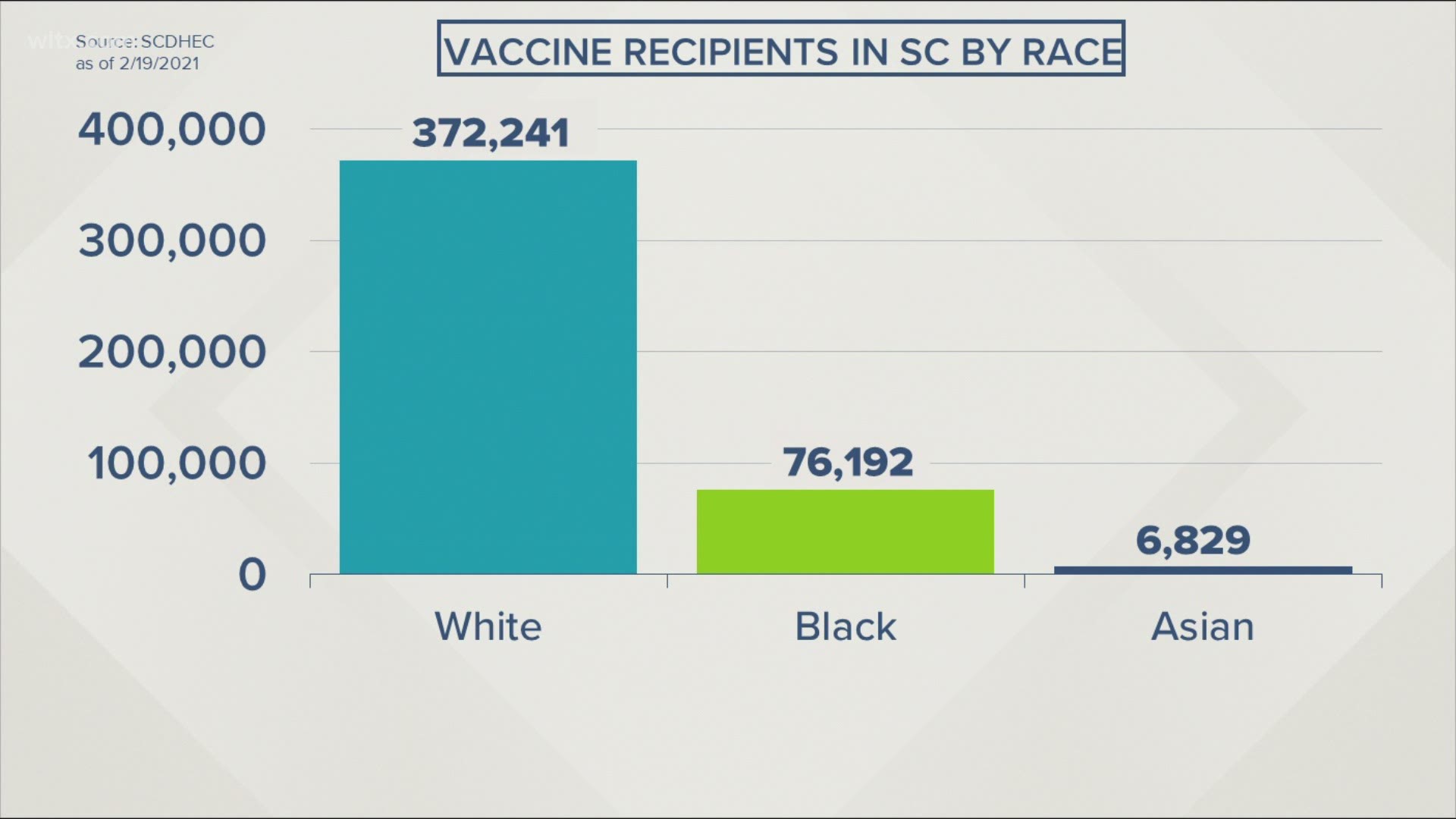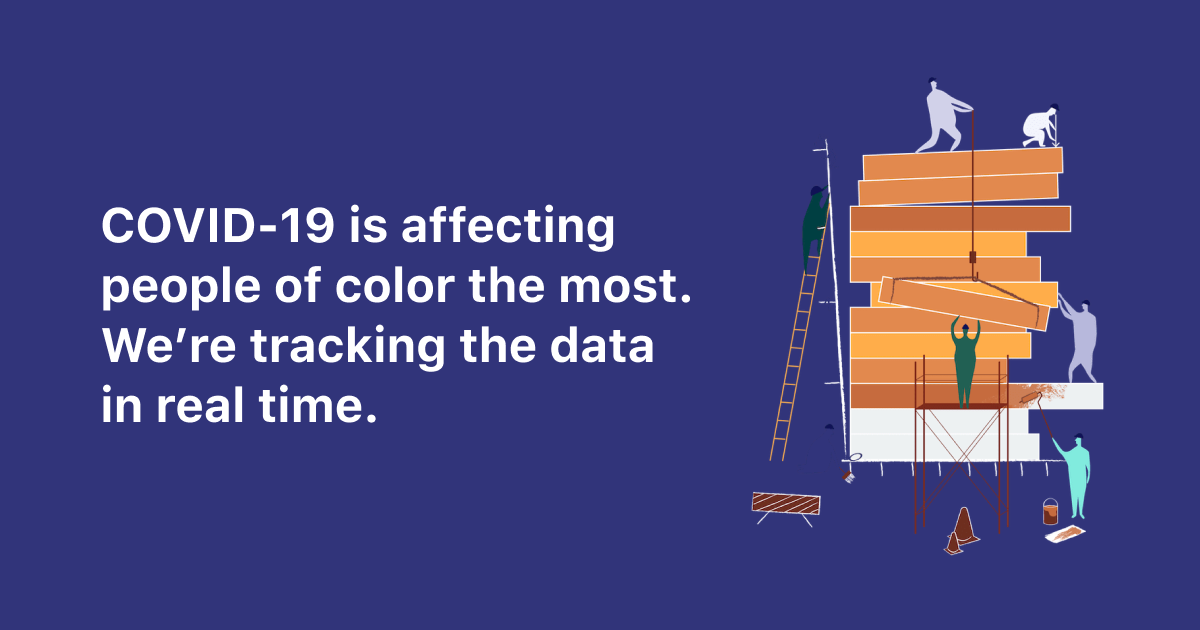COLUMBIA, S.C. — While the COVID19 vaccine is being distributed across the nation and our state, some minority communities don't have full trust in its use.
Systematic health and social inequities have greatly impacted the willingness to receive the COVID19 vaccine among minority communities. And data from sources like the The COVID Tracking Project that show black people are dying at 1.4 times the rate of white people nationally doesn’t help the trust.
“As we get more experience with the vaccines, we’re learning that among groups that we expected to have vaccine hesitancy, that’s improving," Dr. Linda Bell, state epidemiologist said in a SCDHEC vaccine briefing Friday, "We did anticipate that certain racial and ethnic groups would have certain hesitancy about the vaccine and that was born out in surveys that were done at the national level and by different researchers.”
According to CDC data: white people far surpass the number of any other race or ethnicity receiving the vaccine in the US. But Dr. Bell says she thinks this is improving.
“We have given dozens and dozens and dozens of teleconferences, webinars, we’ve been specifically reaching out to racial and ethnic minorities groups, community groups and in addition to that we’ve been working with our partners to carry these messages of the safety of the vaccine," Dr. Bell continues, "what we’re learning as more and more doses- 50 million doses now administered in the country- when people said they wanted to get more experience, wanted to learn more about possible side effects.”
The AARP recommends these steps to decreasing these health disparities: increasing access to home and community-based services, bridge the digital divide or barrier for minority communities when trying to access telehealth and building more trust.
“We are seeing less hesitancy and more demand for the vaccine and so we certainly want to fulfill those demands for the vaccine in those impacted communities as quickly as possible," Dr. Bell said.


